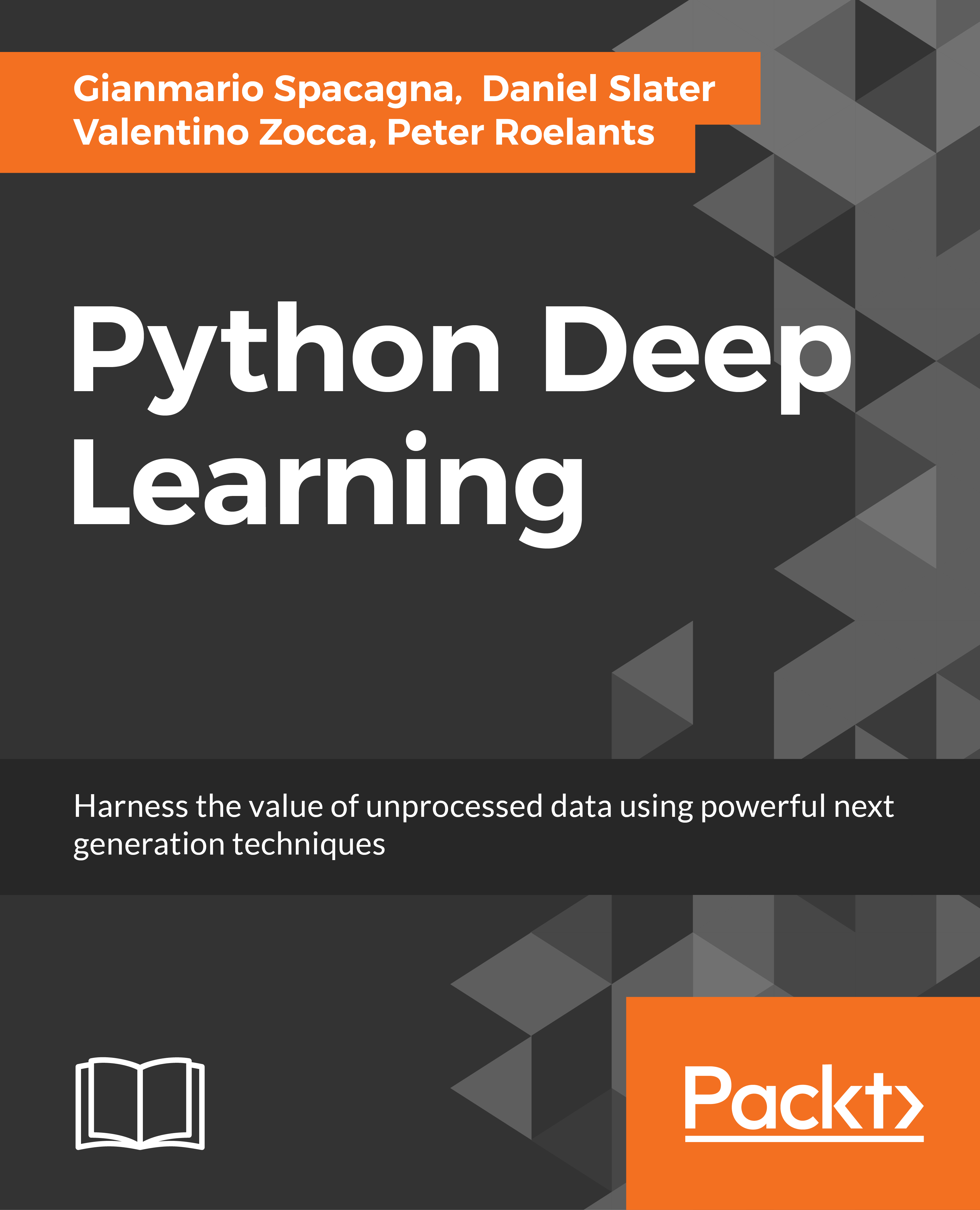-
Book Overview & Buying

-
Table Of Contents

Python Deep Learning
By :

Python Deep Learning
By:
Overview of this book
 Free Chapter
Free Chapter
 Sign In
Start Free Trial
Sign In
Start Free Trial


 Free Chapter
Free Chapter
You may have read sci-fi novels from the 50's and 60's; they are full of visions of what life in the 21st century would look like. They imagined a world of people with personal jet packs, underwater cities, intergalactic travel, flying cars, and truly intelligent robots capable of independent thought. The 21st century has arrived now; sadly, we are not going to get those flying cars, but thanks to deep learning, we may get that robot.
What does this have to do with deep learning for board games? In the next two chapters, including the current one, we will look at how to build Artificial Intelligence (AI) that can learn game environments. Reality has a vast space of possibilities. Doing even simple human tasks, such as getting a robot arm to pick up objects, requires analyzing huge amounts of sensory data and controlling many continuous response variables for the movement of the arms.
Games act as a great playing field for testing...
